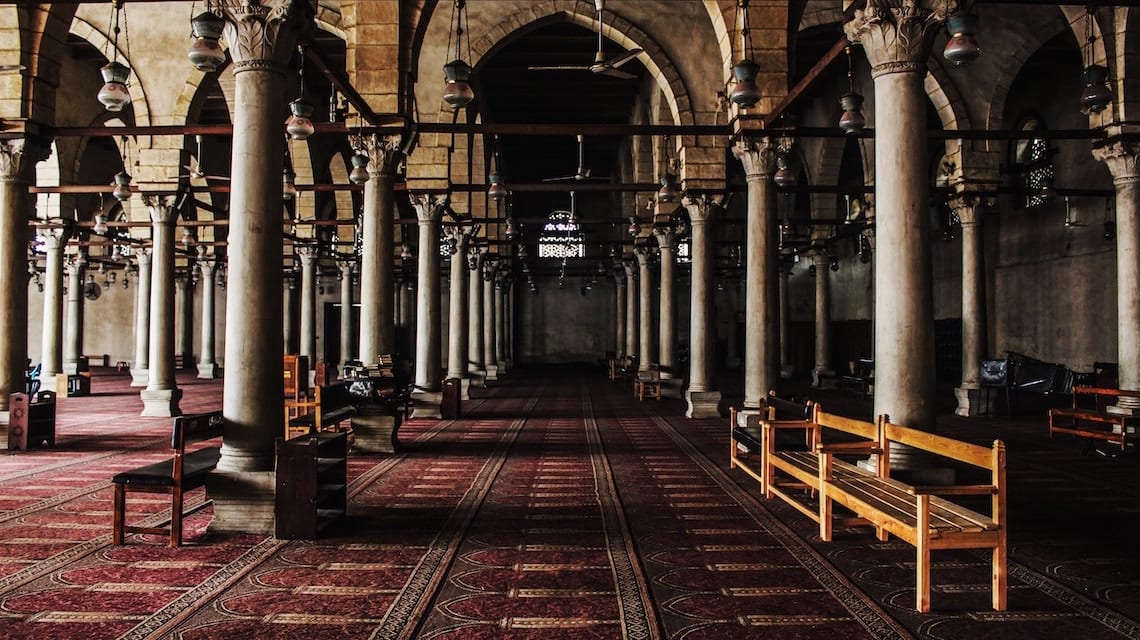Forced to Sit without Tahiyat al Masjid
Hanafi FiqhMaliki FiqhShafi'i Fiqh
Shaykh Abdul-Rahim Reasat is asked about the sunna of tahiyat al masjid and whether it is best to sit down during the iqama or to stand.
Question:
Assalam alaykum wa rahmat Allah wa barakatuh.
I live in an area where there is only one mosque within walking distance and it is the local mosque affiliated to no organization or jamaat.
I have the same right over the mosque as they have, but when there is no time for tahiyat al masjid, I tend to stay standing until one or two minutes before the iqamah is given. Sometimes people will force me to sit down saying it is a sunna.
I want any unbiased islamic fatwa/hadith/Qur’anic interpretation from any faqih/mufti that will help me make wiser/less fitna-inducing decisions.
Jazak Allah khayr.
Answer:
Wa alaykum assalam wa rahmat Allah wa barakatuh.
I pray you are well.
Sitting During the Iqama
It is better for you to sit. Firstly because it is disliked to remain standing whilst the Iqama is being given until the statement of “hayya ‘ala ’l-falah.” (Ibn Abidin, Radd al-Muhtar).
Getting On With People
Secondly, because the Messenger of Allah said, “The believer gets on [with people].” (Ahmad) Going against the regular practice of people causes friction, and a believer is someone who leaves a positive mark on people with a smile, a light joke, or an endearing gesture.
Doing something that rubs people the wrong way will make you a bullseye for a lot of glares and comments. This could leave you with an unpleasant feeling about the masjid and its people, or even put you off from going there.
It is best to overlook minor annoyances, or, even better, to deal with them with a sense of humor. We have all dealt with the uncles in the mosque who have a heart attack if someone walks in with their socks on, or if the Iqama is not called when the second hand reaches “12” on the clock – sometimes, even if the imam is not present!
In many cases these people are the ones who gave their hard-earned money to build the masjid in the first place, and they are particular about how things are done. Give them a smile, make a joke about something, and walk away having shown good character, honoured the elderly, and done something to please Allah. A pleasant sentence is charity (Bukhari).
Following a Weaker Position to Avoid Friction
Sometimes, it is better to do something sub-optimal in fiqh if it means not causing friction – unless it means that something impermissible will be done. An example of this is what to after the prayer ends.
The position of the Ḥanafī school is to ask for forgiveness (astaghfirullah) three times, and then say a short sentence of duʿa or praise (Allahumma Anta ’s-Salam, wa minka ’s-salam…) before immediately getting up for the sunna prayers. To sit and say one’s devotional prayers and praises is slightly disliked. Even reciting Ayat al-Kursi is deemed too long a wait. (Shurunbulali, Maraqi al-Falah).
However, in many mosques, the imam will sit and make a collective supplication after the prayer. Getting up at this point could cause offence§, so it is better to sit and do what everyone else does, and then get up for the sunna prayers.
The Point is Allah
Going to the masjid is about pleasing Allah. He should be focus of the entire endeavor. If a particular masjid resembles a concentration camp then it might be better to pray in another masjid, if possible, where you can focus on Allah.
May Allah make our hearts attached to the mosques and shade us with His shade on the day where there is no shade save His. Amin.
Abdul-Rahim
Checked and approved by Shaykh Faraz Rabbani.
